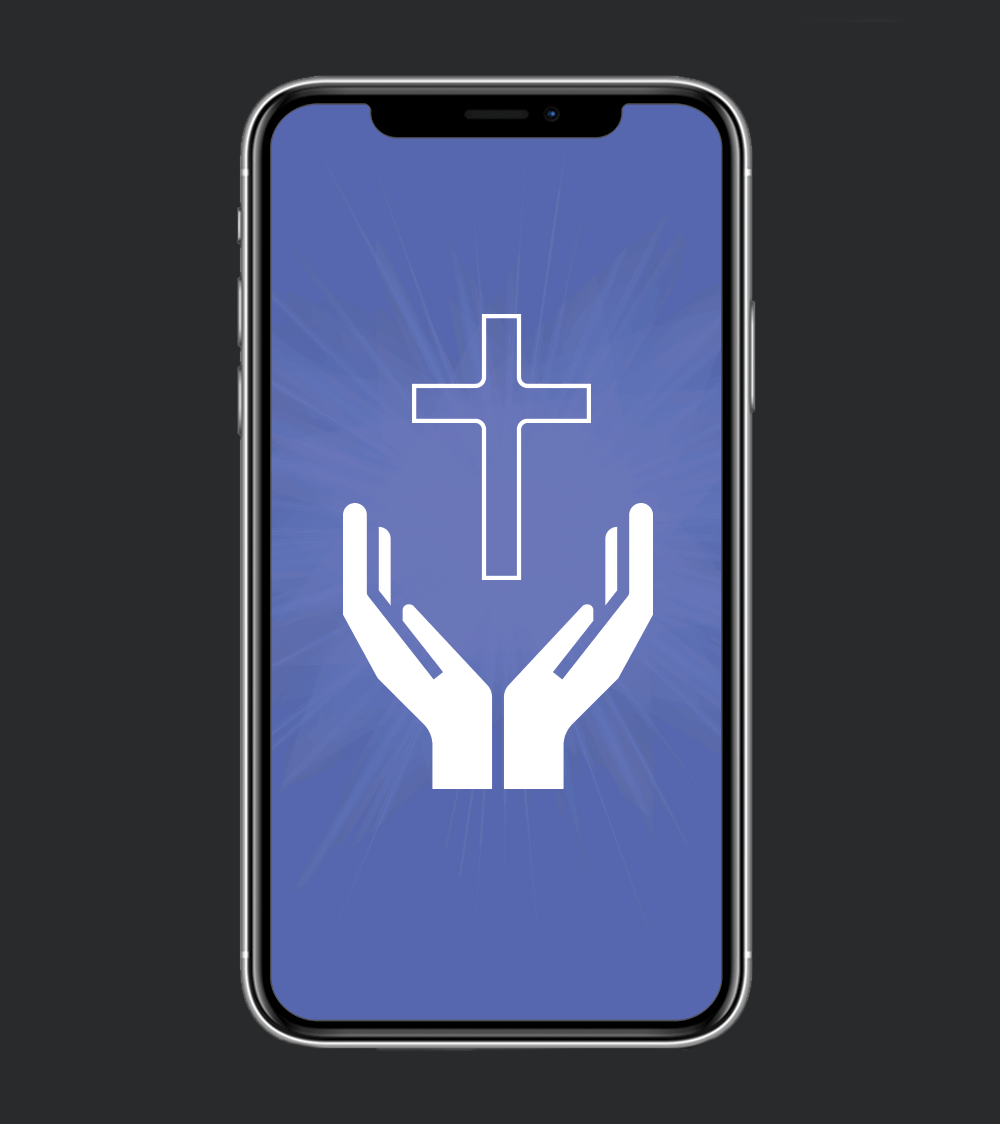Tim and Kristy Turner believe they were called to spread the word of Jesus through apps. In 2005, the pair founded Subsplash, a technology company whose mission, as stated on its website, is “to glorify God and proclaim Jesus is Lord by building a great company that drives for humility, innovation, and excellence to delight the millions of people on the Subsplash Platform.” The Turners hoped their platforms would help church leaders build websites and apps that would allow them to spread the Good News to their congregation with the click of a few buttons.
Today, Subsplash has offices in three states and counts among its 14,000 clients the largest churches in the country, small congregations in rural communities, and even a few synagogues. The company has expanded its platform and added new features: Pastors can now use Subsplash to host podcasts, videos, and a tithing and charitable giving widget that allow users to easily donate to the church or other causes. Subsplash apps can send congregants push notifications with service times, daily Bible verses, or anything else their pastors deem worthy. The pandemic has accelerated Subsplash’s growth: In March 2020, the company acquired a live streaming service that allowed churches to broadcast services as lockdowns began.
Tim Turner, Subsplash’s fauxhawked forty-something founder whose video appearances combine evangelical earnestness with Silicon Valley idealism, likes to describe his company as a conduit for God’s word. “The Lord is in control, and it can be especially fun if we can be submitted to that,” Turner says in a video Subsplash produced in 2019 about the company’s history. The company’s name, he explains, reflects this ethos: “Sub” is short for “submitting to God,” and “splash” is a reference to innovation. (This site preceded the much more well known Substack platform.) The Subsplash website is full of rhapsodic testimonials from satisfied customers. “We’ve received rave reviews already about [the app] because it provides one more medium to extend our messages about the gospel out to the world,” says one from the lead pastor at one megachurch in Texas. “May the gospel be shared over and over through the work you guys do and may our great King’s name be glorified.”
In its promotional materials, Subsplash promises to give individual churches full control over their content. Indeed, what is available on Subsplash-hosted platforms varies widely, as it reflects the diversity in spiritual and political beliefs of the vast array of congregations in the United States. “With no ads or censorship, auto-updated content, and a fully-customizable media player, keeping gospel-centered content in front of your community has never been easier,” the company boasts.
But there’s a dark side to the company’s hands-off approach. Since the beginning of the pandemic, Subsplash has given voice to and amplified messages from many religiously affiliated anti-vaccine activists. On one Subsplash-hosted website called “His Glory Me,” viewers can watch videos that urge them not to yield to pressure to get vaccinated against COVID-19. In a video from a few weeks ago, featured guest chiropractor Dr. Bryan Ardis insists, “The Delta variant is not dangerous.” The Church of Glad Tidings’ “Free and Brave” video series hosted by Subsplash features noted anti-vaccine advocates, including Judy Mikovits, the personality behind the “Plandemic” conspiracy theory video. A September 12 video from Subsplash-hosted site Good Life Broadcasting spins theories about ominous connections among vaccines, the government, Bill Gates, and the Chinese Communist Party. Through Subsplash, the American Pastors Network runs a podcast series called “Stand in the Gap,” which rails against mandatory vaccines and questions the seriousness of COVID-19. A July episode featured noted purveyor of vaccine misinformation Dr. Robert Malone, who claimed that “we don’t have good information” about the vaccines’ risks, and that he was being censored in trying to warn people about the potential dangers. Some sites hosted by Subsplash also promote misinformation around the antiparasitic drug ivermectin, suggesting that it can prevent hospitalization. Other Subsplash sites host videos devoted to the QAnon conspiracy theory.
Subsplash’s hosting of anti-vaccine ideology isn’t limited to churches. In addition, the company also developed an app for Texans for Vaccine Choice, a powerful anti-vaccine PAC that has helped Republican state representatives who oppose vaccines to win elections. In a recent Facebook video, Texans for Vaccine Choice director Jackie Schlegel offered an impassioned endorsement. “It’s not a fancy-schmancy app,” says Schlegel. “But it took a lot of work to find a developer who didn’t want to censor us.” Earlier in the video, Schlegel describes her own experience of leaving her church because its youth group leaders required kids to wear “masks outside in the summer heat, standing on socially distanced dots as if they were little socialist soldiers.”
The extent to which Subsplash could be considered directly culpable in the promotion of COVID-19 misinformation is debatable: The company simply provides the platform—it doesn’t control what individual preachers say. (The company didn’t respond to questions sent by Mother Jones.) But from politics to medicine, the online spread of conspiracy theories has called into question the role of technology companies as gatekeepers. Facebook, for example, has been implicated in allowing conspiracy theories to flourish. Lawmakers have tried to call it to account with limited success.
Eric Goldman, a law professor who co-directs Santa Clara University’s High Tech Law Institute, argues that Subsplash can’t be held legally responsible for the content that individuals who use the platform put forth. He believes the ethics are different from those around Facebook, which employs vast teams of monitors who act as moderators for questionable posts, because Subsplash does not curate the content. “I would like to think that Subsplash would recognize that it’s become a channel for the broadcasting of misinformation,” he noted, “and it might choose to intervene on that basis, but it has the legal discretion not to.”
Yet Kolina Koltai, a University of Washington researcher who studies the anti-vaccine movement’s use of social networks, was more emphatic in her belief that Subsplash has a duty to weed misinformation out of its platforms. “These types of platforms, when they begin to be developed, should take into consideration: What are the ways that misinformation can be shared on this platform?” she says. Koltai pointed to other examples of web hosting companies booting sites that they found ethically problematic. For example, earlier this month, the hosting company GoDaddy announced that it would stop hosting a Texas anti-abortion site set up to collect anonymous tips about healthcare workers who provide abortions in defiance of the state’s new law. In 2019, another web company, Cloudflare, booted the extremist forum 8chan from its client roster, calling it a “hate-filled community.” Koltai, who also collaborates with the vaccine misinformation watchdog group the Virality Project, said that she’s noticed an uptick in purveyors of disinformation deliberately exploiting web platforms that aren’t tightly controlled to spread their messages, especially as major players like Facebook and Twitter have ramped up their monitoring efforts.
One could even argue that given who its users are, Subsplash has a special responsibility. A misinformation ecosphere has blossomed within many Christian communities over the last 18 months with dire public health consequences. Evangelical Christians are among the groups most strongly opposed to the COVID-19 vaccines. According to an ongoing survey by the Kaiser Family Foundation, nearly a quarter of white evangelical Christians said in July that they definitely did not plan to get vaccinated, compared to just 14 percent of the general population. So strong is the anti-vaccine sentiment among evangelicals that some church leaders have taken it upon themselves to try and correct misinformation that circulates in church communities. When my colleague Andrea Guzman interviewed Curtis Chang about his Christians and the Vaccine project, Chang explained that he believes ant-vaccine misinformation flourishes among evangelicals because many Christians are taught to doubt, even fear secular institutions. “QAnon, the anti-vaxxer movement—they have realized that evangelicals are fertile hunting grounds for their theories, because they are already primed to be distrustful of institutions, and so they can be easily kind of recruited into their deep conspiracies of distrust,” he said.
Now, with cases from the Delta variant surging and the proliferation of federal and local COVID vaccine mandates, some public health experts are concerned that exemptions for “religious beliefs” could be exploited. Some workers who don’t want the shots “are submitting letters from far-flung religious authorities who have advertised their willingness to help,” the New York Times reported. Indeed, a recent episode of the American Pastors Network’s Subsplash-hosted podcast “Stand in the Gap” contained instructions for how to “prepare your religious exemption letter” for vaccine requirements.
Which gets at what ultimately irks both Goldman and Koltai: It’s not the existence of platforms that host misinformation, but that there is a robust market for them, which allows them to thrive. “It’s troubling to see businesses that ultimately are profiting off of the dissemination of this information or harmful content,” he says. Because of that financial incentive, adds Koltai, “There’s never enough pressure on these organizations.”

















